Dispatches From The 55th Chicago International Film Festival

Andrew Emerson is a University of Chicago student. His high…
As a big-city festival that’s nevertheless much less prestigious than other festivals in America (think Sundance and Telluride), Chicago’s annual International Film Festival has always been in a sweet spot. The festival regularly screens the biggest hits from international festivals like Cannes and the Berlinale. But it also plays host to smaller projects that’d otherwise get completely overlooked.
This year’s festival, which took place from October 16 to 27, was no exception to this rule. The newest works of big-name directors – François Ozon, Céline Sciamma, Ken Loach, Terrence Malick, and others – shared space alongside lesser-known films from 137 countries. What follows are takes on seven films that screened at the festival.
Balloon (Pema Tseden)

At the core of Pema Tseden’s Balloon is a couple with a problem. Dargye (Jinpa) and Drolkar (Sonam Wangmo) are Tibetan farmers who can’t afford to have a fourth child. Unfortunately, thanks to Dargye’s high libido – and the fact that his two youngest sons steal his condoms in the belief that they’re toy balloons – Drolkar ends up getting pregnant anyway. The doctor at the local clinic recommends an abortion, but for religious reasons, Dargye strenuously objects to that course of action.
From this apparently simple narrative about an unwanted pregnancy, Tseden creates an immersive and complex portrait of a place that’s defined by an inescapable sense of helplessness. The characters invariably find themselves boxed in by mores and laws – China’s strict birth control policy, for instance – that they have next to no influence over. This holds especially true, moreover, for the female characters, all of whom are forced to comply with antiquated and oppressive notions of what women can and can’t do.
And yet, despite the suffering and injustices it uncovers, Balloon never feels overly dark. In a gesture that recalls the poetic realism of films like L’Atalante, Tseden regularly inserts dream sequences into the film, suggesting that the gritty squalor of the characters’ lives can nevertheless give rise to a certain kind of beauty. To put it all another way, Tseden is aware of the hardship that his characters go through, but his balanced direction ensures that the film never sinks into unremitting cynicism.
Ever since the Chinese government took control of Tibet in 1950, ethnic Tibetans have continually been the target of discrimination and prejudice. Among the many other good things it does, Tseden’s work gives Tibetans a visibility that they far too rarely attain in modern-day Chinese society. In a way, the very act of making a film about daily life in Tibet is in itself political – and even if you don’t like anything else about it, Balloon deserves credit for making a quiet but meaningful plea for greater ethnic equality.
By the Grace of God (François Ozon)
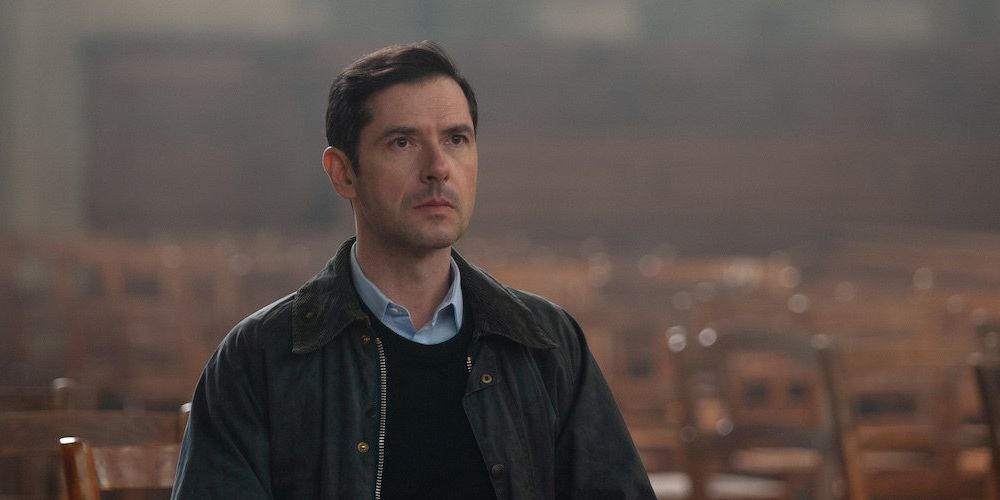
After building a career out of fictional films about sexually liberated women (e.g. 8 Women), François Ozon decided to shake things up and tell a true story about sexually abused men. By the Grace of God follows three French men (played by Melvil Poupaud, Denis Ménochet, and Swann Arlaud) who were molested as children by a Catholic priest named Bernard Preynat (Bernard Verley). In a bid to raise awareness about sexual abuse within the Catholic Church, the three of them found a victims’ rights organization (La Parole Libérée) and file a lawsuit against Preynat.
From this description, you might be tempted to think that By the Grace of God is just a “French Spotlight.” But Ozon’s film appreciably differs from its American counterpart in several respects. Whereas Spotlight focused on concerned bystanders – namely, journalists investigating pedophilia – By the Grace of God interests itself in people who were direct victims of sexual abuse. Tonally, moreover, By the Grace of God is also much darker than Spotlight, illustrating how the lawsuit against Preynat divides victims’ families, dredges up unpleasant memories, and ultimately fails to bring emotional closure.
Admittedly, if you’re familiar with Ozon’s oeuvre, you might find By the Grace of God to be slightly disappointing. Unlike many of Ozon’s earlier works, this is very much a “classical narrative film” that subordinates style to the demands of the narrative. And the film’s earnest tone feels a bit conventional: there’s none of the cheerful flippancy that characterized something like 8 Women.
Still, whatever its shortcomings, By the Grace of God gets the fundamentals right. It has an important narrative to tell, and even if it’s “only” a conventional narrative film, it communicates that narrative clearly and persuasively. Sometimes – and especially when it comes to the Catholic Church – this kind of righteous, forthright indignation is precisely what’s needed.
Clemency (Chinonye Chukwu)
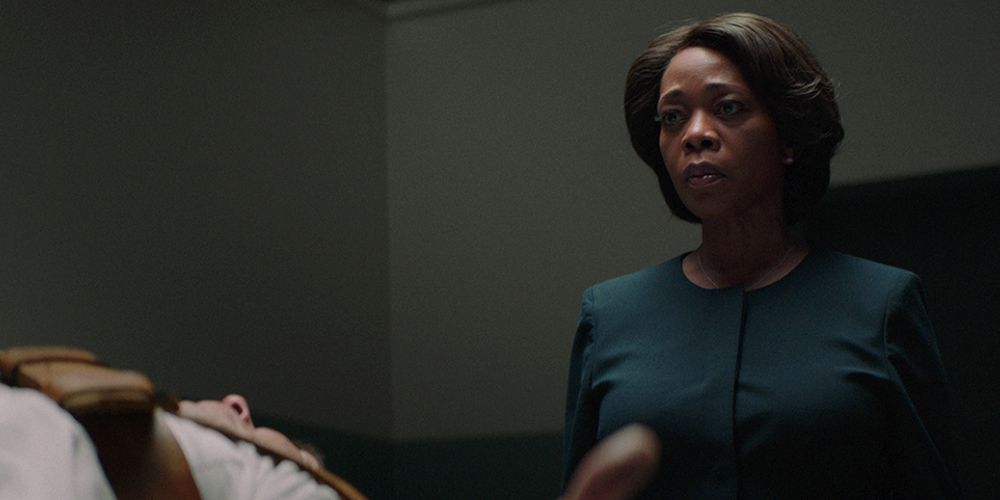
In the press, Chinonye Chukwu’s Clemency has frequently been described as an anti-death-penalty “advocacy movie.” Granted, it’s not hard to see why. The protagonist, an African-American woman named Bernadine Williams (Alfre Woodard), is a prison warden who’s responsible for several prisoners on death row. The film begins with Williams presiding over an execution that goes horribly wrong, and it concludes with the execution of a prisoner (Aldis Hodge) who is suggested to be innocent of the crime he allegedly committed.
This interpretation of Clemency as a kind of “message movie,” however, overlooks its interest in – and expert understanding of – human psychology. Chukwu is less interested in making an overtly political statement than in exploring how people rationalize doing fundamentally evil things. It’s not the most intuitive connection, but with its interest in how Bernadine deals with feelings of shame, guilt, and revulsion, the film might remind you of Son of Saul, a Holocaust drama that also features a character who works in a moral gray zone.
None of this is to say that Clemency is perfect: in particular, the narrative’s depiction of Bernardine’s marital troubles feels a bit formulaic. But in general, this is a searing film whose insights into human nature will leave you both deeply moved and deeply disturbed. And I’d ultimately be remiss if I didn’t also mention that Woodard gives one of the year’s most fascinating performances.
Corpus Christi (Jan Komasa)
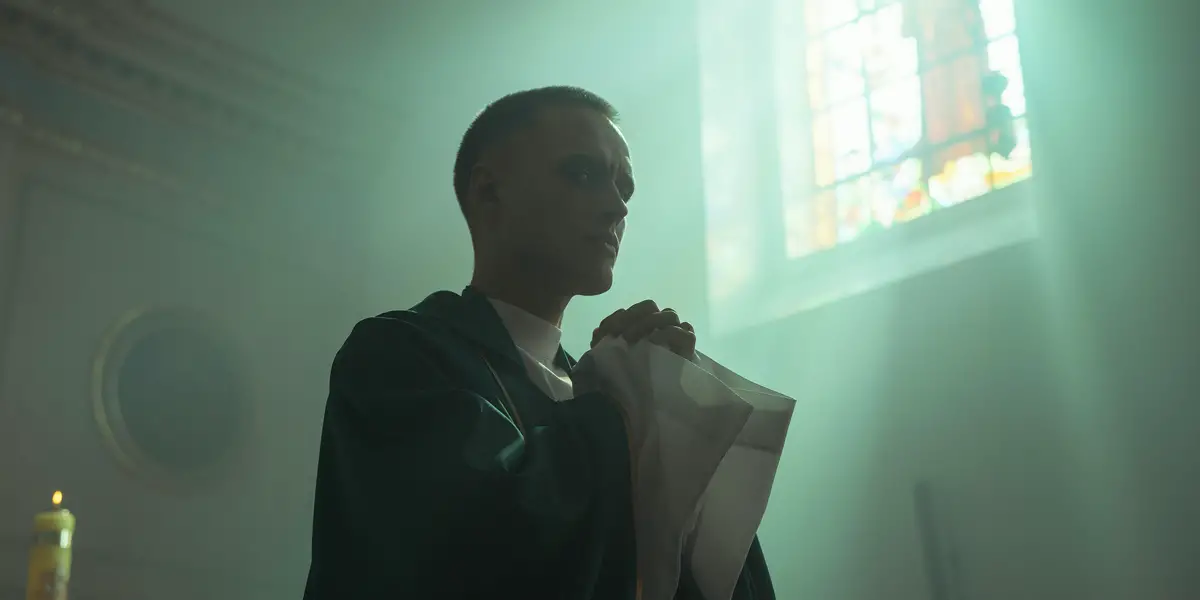
Ask any film buff to describe modern Polish cinema, and the adjective she’ll most likely use is “bleak.” In large part, this is thanks to directors like Paweł Pawlikowski (Ida) and Małgorzata Szumowska (Mug), both of whom have portrayed Poland as a depraved and overly conservative country that’s unable to reckon with its past.
Poland’s submission to next year’s Oscars, Corpus Christi, doesn’t exactly buck this trend. The film follows a juvie named Daniel (Bartosz Bielenia) who’s released from prison on parole. Making his way to an unnamed rural town, he successfully tricks the townspeople into believing that he’s a wandering priest, and he soon becomes the town’s go-to spiritual and emotional counselor.
This criminal-turned-saint story might remind you a bit of Les Misérables. But in contrast to Tom Hooper, director Jan Komasa isn’t interested in telling a cat-and-mouse story about Daniel’s attempts to evade the law. Rather, the film meditates on what Daniel’s story has to say about modern Polish society, using his ordeals to criticize Poland’s rampant corruption, antiquated understanding of religion, and hypocritically cruel justice system.
I wouldn’t say that Corpus Christi is a “great” film, seeing as filmmakers like Pawlikowski and Robert Bresson have already tackled many of its themes with more insight and originality. But the thing that still makes the film worth a watch is Bielenia. He imbues his character with a palpable sense of vulnerability, and thanks to him, a story that might otherwise seem familiar feels both fresh and meaningful.
I Was at Home, But… (Angela Schanelec)
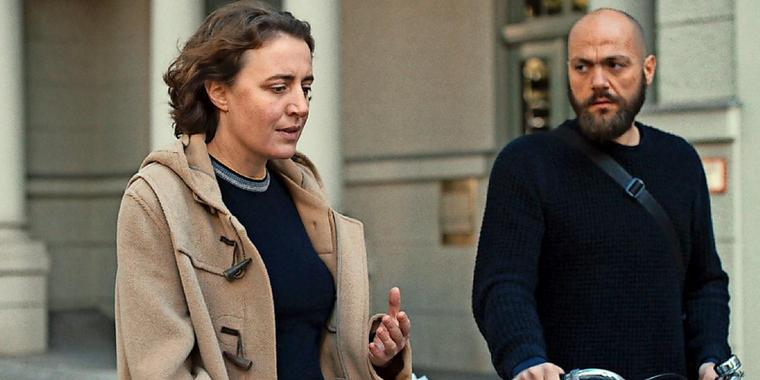
If you really thought about it, you could say that Angela Schanelec’s I Was at Home, But… has a narrative. Astrid (Maren Eggert) is a woman whose husband has recently passed away. Her son Philip (Jakob Lassalle) disappears from home for a week – only to eventually return with an injured foot. As you might imagine, these various events all leave Astrid feeling confused and lost, and she spends most of the film in a state of seemingly insurmountable grief.
This bare-bones plot summary, however, doesn’t capture what it’s like to actually watch Schanelec’s film. In the moment, the film’s nonlinear editing and aversion to dialogue make it very difficult, if not impossible, to follow its supposed narrative. (In fact, I had to Google a plot summary to make sure I got all the details right.) And the film is full of seemingly irrelevant elements – shots of rabbits and donkeys, scenes of children monotonously reciting lines from Hamlet – that don’t fit with Astrid’s story at all.
Ultimately, however, this incomprehensibility is arguably what makes Schanelec’s work so intriguing. Like Yasujiro Ozu – the director of the film (I Was Born, But…) that the title of Schanelec’s work references – Schanelec seeks to challenge our understanding of what films ought to be and do. Every frame of I Was at Home, But… categorically rejects the conventional idea that narratives, “messages,” and “interpretation” should take precedence over style and the sensorial experience of viewing a film.
Since its premiere at this year’s Berlinale, many people have condemned I Was at Home, But… as “pretentious.” But even if you end up hating it, you won’t be able to deny the radicality and importance of what Schanelec’s film tries to do. With its unashamedly opaque style and deep self-awareness, this film forces you to think about some of the most fundamental questions out there – the nature of the film medium, what it means to portray “reality,” the purpose of filmmaking, and so on. It may not offer much in the way of entertainment, but this is ultimately a film that deserves to be watched, re-watched, and pondered – slowly.
Knives Out (Rian Johnson)

As a throwback to 1970s mystery films, Rian Johnson’s Knives Out makes for a fairly entertaining watch. The mystery here stems from the death of Harlan Thrombey (Christopher Plummer), an 85-year-old man who made a multimillion-dollar business empire out of bestselling crime novels. Suspecting foul play, a private detective named Benoit Blanc (Daniel Craig) decides to treat every member of Thrombey’s household – Thrombey’s children and their families, plus Thrombey’s Hispanic servant Marta (Ana de Armas) – as a murder suspect.
The problems with Knives Out arise when it tries to provide social commentary. On the one hand, Thrombey’s family members are all depicted as arrogant and greedy narcissists, and their treatment of Marta often proves both condescending and shockingly callous. Johnson encourages us to view these characters as emblems of white privilege, and through them, the film seeks to criticize the nativism and racism of Trump-era America.
The irony, however, is that Johnson’s portrayal of Marta, the film’s central non-white character, is hardly the epitome of minority empowerment. Right up until the very end of the film, she’s depicted as a helpless young girl who’s incapable of fending off attacks from Thrombey’s children and grandchildren. And it’s only thanks to the encouragement of various white men – first Thrombey’s younger son Ransom (Chris Evans), then Blanc – that she finally comes to assert herself.
There’s a lot to like in Knives Out – its unabashedly artificial sets, Craig’s hilarious performance, and its fairly intricate plot. But the film’s portrayal of Marta embraces the very same kind of condescension that it so mordantly condemns, and its depiction of Blanc is occasionally reminiscent of the “white savior” trope. The contradictions at the heart of Johnson’s politics make this an ultimately frustrating addition to the mystery genre.
Lara (Jan-Ole Gerster)
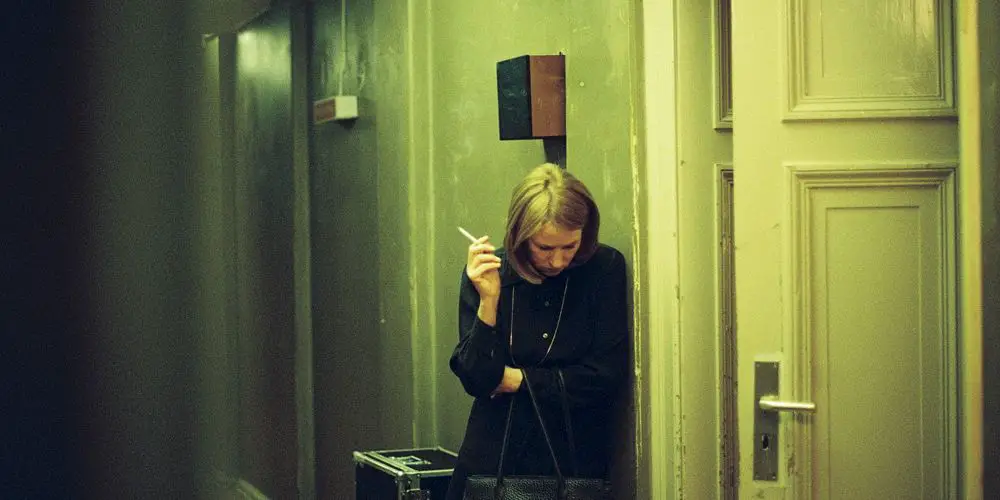
The first thing that Jan-Ole Gerster’s Lara will remind you of is Michael Haneke’s The Piano Teacher. With her reddish hair and steely gaze, the titular protagonist (Corinna Harfouch) could pass for a German doppelgänger of Isabelle Huppert. The film’s rather austere aesthetics, moreover, instill the same feelings of dread and uneasy anticipation that feature so prominently in Haneke’s work.
As though all of these visual similarities weren’t enough, Gerster also shares Haneke’s interest in emotional repression and sadism. Put simply, Lara’s premise is that Lara’s son, a pianist named Viktor (Tom Schilling), is giving a public concert on her 60th birthday. What ought to be a joyous day, however, ends up being something much less pleasant, as Lara is gradually revealed to be a controlling and emotionally manipulative woman who views Viktor’s success as compensation for her own failed musical career.
Thanks in part to the similarities that I’ve discussed here, Lara often feels like a less complex spin-off of Haneke’s work. Still, Gerster is undeniably a master of subtlety, and Harfouch deserves credit for making it difficult to classify her character as “good” or “bad.” Even if the film proves rather slight, it suggests that Gerster and Harfouch are two individuals we ought to be paying more attention to.
Does content like this matter to you?
Become a Member and support film journalism. Unlock access to all of Film Inquiry`s great articles. Join a community of like-minded readers who are passionate about cinema - get access to our private members Network, give back to independent filmmakers, and more.
Andrew Emerson is a University of Chicago student. His high school English teacher once asked him to read a batch of Roger Ebert’s reviews for class, and he’s been fixated on the idea of writing about movies ever since. You can follow his attempts to pursue this obsession at http://filmwatcher.net/.












